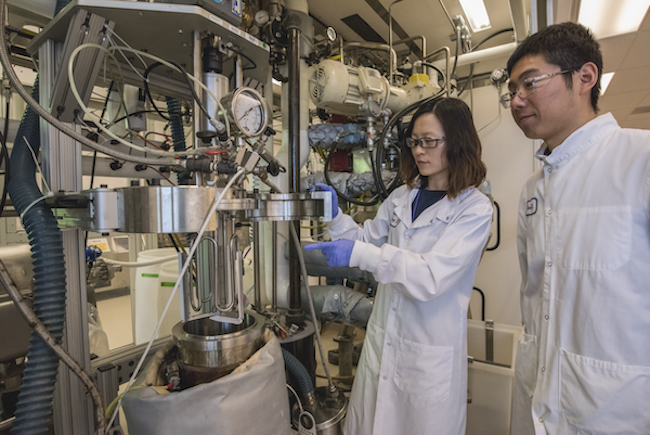As the need for energy security grows, scientists are investigating nonfood biomass sources that can be used to create valuable biofuels and bioproducts. Among these sources is municipal solid waste (MSW) — in other words, trash that’s produced every day around the world in significant amounts.
In a new study published in the journal ChemSusChem, researchers at Berkeley Lab created six blends that combined MSW items (non-recyclable paper and grass clippings) with biomass (corn stover and switchgrass). Using an ionic liquid-based process, they converted these blends into methyl ketones, which are chemical compounds that can be used as diesel fuel precursors.
This is the first report on the conversion of MSW to methyl ketones using an ionic liquid process, an efficient biomass pretreatment process that is becoming more sustainable. The research was a collaboration between the Joint BioEnergy Institute and the Advanced Biofuels and Bioproducts Process Development Unit (both established by the Department of Energy and based at Berkeley Lab), where researchers scaled up one of these blends 30-fold and are currently attempting to scale up the process even further.
“The ionic liquid-based conversion represents an efficient and more environmentally friendly process for biomass upgrading,” said Berkeley Lab researcher Ning Sun, the study’s corresponding author. “This opens the door to building biorefinery facilities that use diversified feedstocks to produce a range of chemicals.”
